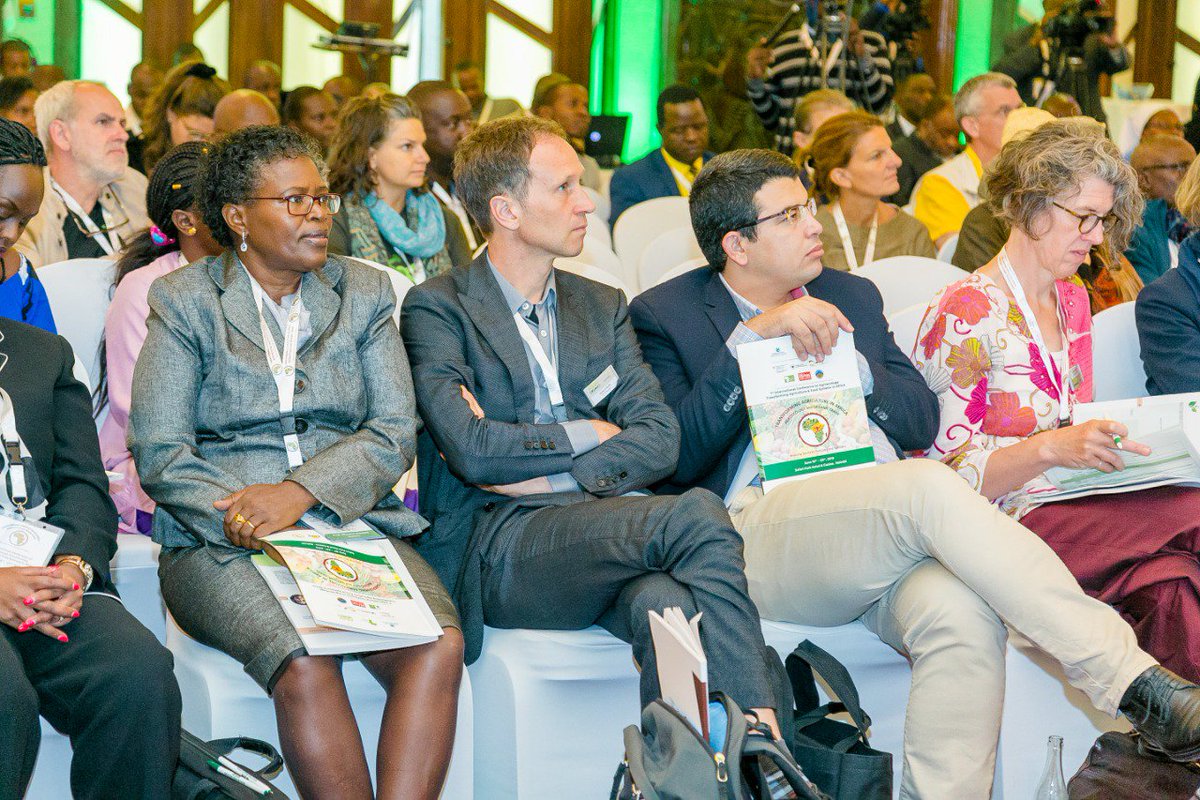18-21 June 2019. Nairobi, Kenya 1st International Conference on Agroecology Transforming Agriculture& Food Systems in Africa. Reducing Synthetic Fertilizers and Pesticides through Scaling Up Agroecology,Promoting Ecological Organic Trade.
#AgroecologyConf2019 @Agroecology2019
There has been a growing interest in agroecology in recent years as an innovative and sustainable response to the challenges facing our food and agriculture systems. In particular, this has been since 2014 with FAO playing a leading role in facilitating global dialogue on agroecology.
19/06 Morning session
19/06 Afternoon session
Thematic Areas
 1. Reducing Synthetic fertilizers and pesticides
1. Reducing Synthetic fertilizers and pesticides
4. Strengthening Ecological Organic Trade, Markets and Economy
5. Policies and legislation success efforts in synthetic fertilizers and pesticides reduction, Agroecology and Ecological Organic Trade.
 Related: WHEN ANTS AND MICROBES JOIN HANDS
Related: WHEN ANTS AND MICROBES JOIN HANDS
Quite a few of the presentations at the conference had nicely illustrated the benefits of organic agriculture to people and the environment, but Prof Panfilo and his team stood out because they illustrated how the introduction of even a single, modern eco-technology can have such a wide range of benefits.
Not all microorganisms are bad, as people in the industry, schools and media often wants us to make believe. Thanks to the work of practical researchers, we learn that this healthy mix of microscopic flora can cure mildew, attract ants that kill pests, provide a safe alternative to pesticides and stop cashew fruit juice from oxidizing for months.
For several years, Panfilo and his colleagues began to teach villagers to make their own liquid molasses from dried and stored cashew apples as a source of sugar, minerals and amino acids to feed and multiply the microorganisms. So the farmers made molasses to feed the effective microorganisms, which controlled the Oidium. But even when the fermented solution was ready to spray on the trees it was still sweet. “When farmers spray their trees with the solution, the sweet liquid and amino acids attracts the ants.”
Although the poster did not tell the full story, there was still truth in saying that microorganisms controlled the fungal disease and the pest, in reality it was the fermented solution that attracted the ants, which controlled the bugs. Still, even such a roundabout pest control is worth having.
#AgroecologyConf2019 @Agroecology2019
There has been a growing interest in agroecology in recent years as an innovative and sustainable response to the challenges facing our food and agriculture systems. In particular, this has been since 2014 with FAO playing a leading role in facilitating global dialogue on agroecology.
- Through a series of 9 regional and international multi-stakeholder meetings, more than 2,100 participants from 170 countries have come together to discuss the potential of agroecology to transform food and agriculture systems, as well as identify needs and priorities to scale up agroecology as a strategic approach to achieve Zero Hunger and the SDGs.
- This process culminated in the 2nd International Symposium on Agroecology in April 2018 in Rome, where FAO and UN Partners launched a Scaling Up Agroecology Initiative, marking a shift in focus from dialogue to action.
- The “Global Advocacy Project (GAP) 2017-2020” implemented by Biovision Africa Trust (BvAT) and PELUM Kenya, funded by SSNC and others aims at contributing to the Scaling up Agroecology Initiative and at bringing the agroecology discussion to policymakers and other key stakeholders in Eastern Africa, particularly Kenya, Ethiopia and Uganda.

18/06 Morning session
18/06 Afternoon session
19/06 Morning session
19/06 Afternoon session
Thematic Areas
 1. Reducing Synthetic fertilizers and pesticides
1. Reducing Synthetic fertilizers and pesticides- Impact of synthetic inputs.
- Alternative environmentally based technologies and methodologies to reduce synthetic pesticide use and contamination
- Frameworks, methods of performance assessment and scaling up strategies for Agroecology.
- Partnerships, networking and financing innovations.
4. Strengthening Ecological Organic Trade, Markets and Economy
5. Policies and legislation success efforts in synthetic fertilizers and pesticides reduction, Agroecology and Ecological Organic Trade.
 Related: WHEN ANTS AND MICROBES JOIN HANDS
Related: WHEN ANTS AND MICROBES JOIN HANDSQuite a few of the presentations at the conference had nicely illustrated the benefits of organic agriculture to people and the environment, but Prof Panfilo and his team stood out because they illustrated how the introduction of even a single, modern eco-technology can have such a wide range of benefits.
Not all microorganisms are bad, as people in the industry, schools and media often wants us to make believe. Thanks to the work of practical researchers, we learn that this healthy mix of microscopic flora can cure mildew, attract ants that kill pests, provide a safe alternative to pesticides and stop cashew fruit juice from oxidizing for months.
For several years, Panfilo and his colleagues began to teach villagers to make their own liquid molasses from dried and stored cashew apples as a source of sugar, minerals and amino acids to feed and multiply the microorganisms. So the farmers made molasses to feed the effective microorganisms, which controlled the Oidium. But even when the fermented solution was ready to spray on the trees it was still sweet. “When farmers spray their trees with the solution, the sweet liquid and amino acids attracts the ants.”
Although the poster did not tell the full story, there was still truth in saying that microorganisms controlled the fungal disease and the pest, in reality it was the fermented solution that attracted the ants, which controlled the bugs. Still, even such a roundabout pest control is worth having.





No comments:
Post a Comment